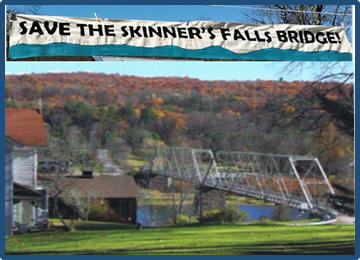NYC Residents: Is There Radon in Your Kitchen?
March 14, 2015Economics and International Trends Sour Shell’s Taste for South African Shale Gas
March 16, 2015By Brendan Gibbons, The Times-Tribune, March 13, 2015
Governor Wolf: Thank you for your recent comments in support of the de facto fracking ban in our Delaware River Basin and for your authorization of much-needed funding for the Delaware River Basin Commission. We salute you for these first steps toward keeping your campaign promises but, like so many Pennsylvanians, we continue to be horrified by the degradation of the Susquehanna River Basin and southwest Pennsylvania, and threats to our protected lands. The harms our neighbors continue to suffer are devastating to their lives, families and communities and we hope you will partner with DCS and other experts to confront these terrible impacts to Pennsylvanians and our irreplaceable resources.
Readers: DCS’ education, advocacy and legal work have been protecting the Delaware River Basin for years. Our early work with Josh Fox and Dimock, PA helped put the Susquehanna River Basin on the map of fracking horrors. Please ensure our work continues by DONATING today!
Gov. Tom Wolf supports a moratorium on gas drilling in the Delaware River Basin, his spokesman confirmed a day after the issue came up in a legislative committee hearing.
“This is a regional decision between Pennsylvania, New Jersey, New York and Delaware and (Mr.) Wolf supports it,” spokesman Jeff Sheridan said in an email Thursday.
On Wednesday, state Department of Environmental Protection Secretary-designate John Quigley told the House Appropriations Committee Mr. Wolf supports the de facto moratorium, which has been in effect since 2011. Mr. Wolf’s proposed budget also increases funding to the Delaware River Basin Commission to $750,000, up almost 73 percent from last fiscal year.
“It was certainly very encouraging news for us,” commission spokesman Clarke Rupert said. “We’re definitely heading in the right direction.”
Exploration and production of natural gas is on indefinite hold in regions east of the Wyoming Valley, where the commission, a compact of four states and the federal government that oversees the Delaware River and its watershed.
Meanwhile, the counties west of the Wyoming Valley have developed into some of the most heavily drilled gas fields in the state. There, the Susquehanna River Basin Commission, another compact among multiple states — New York, Pennsylvania and Maryland — has not significantly regulated the gas industry beyond permits for withdrawing water from rivers, streams and below ground.
Mr. Wolf’s approval came as no big surprise to Jefferson Twp. landowner Curt Coccodrilli, a leader of the Northern Wayne Property Owners Alliance that united landowners in the Delaware Basin who support drilling.
Mr. Wolf “has sided with New Yorkers and people from New Jersey who hate anything industrial about PA,” Mr. Coccodrilli said.
The group has long hinted at a lawsuit it intends to file against the Delaware River Basin Commission for what it sees as a politically motivated delay to appease environmentalists and urban constituents.
Mr. Coccodrilli said they were waiting to hear Mr. Wolf’s stance as they did research into similar suits in New York, Illinois and Pennsylvania, He said the suit could come within months.
“We’re dotting our I’s and crossing our T’s,” he said. “Every mistake that anyone has ever made in this realm, we’re not going to make it.”
Many leases gas companies signed in the Delaware Basin have expired with no activity, but a few remain, Mr. Coccodrilli said. After looking at drilling data from test wells and speaking with geologists, he’s convinced the Delaware Basin could still host oil or gas production.
“There is absolutely commercially viable shale in the Delaware Basin,” he said.
Penn State geosciences professor Terry Engelder, Ph.D., is not so sure. He’s famous for his early predictions of the Marcellus Shale’s productivity, though he has doubts about the Marcellus and the Trenton-Black River formation, another potentially productive shale layer, in that part of the state.
“I think it is politically safe to continue a moratorium for the Delaware River Basin,” he said in an email. “I don’t think that you will hear industry complaining.”
There’s no indication the ban could end anytime soon. In July 2013, Michele Siekerka, New Jersey Gov. Chris Christie’s representative on the commission, said its staff has “spent thousands of hours” reviewing scientific studies, comparing regulations, monitoring water to assess pre-drilling conditions and developing models.
Mr. Rupert said the commission’s staff will wait for directions from the five commissioners on how to proceed.
“They’re continuing to discuss and confer in good faith on the issues, but they’re complex and they’re dynamic,” he said. “As such, there’s no set timetable for when a decision might be coming.”



